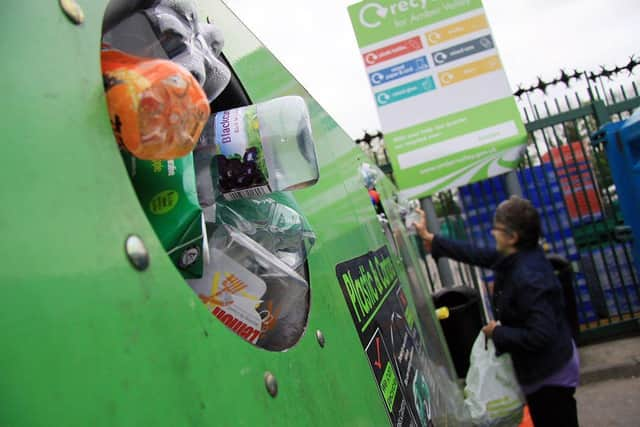How to make small changes to cut down on single-use plastics at home and outdoors
The government is consulting on whether to ban single-use plastic items such as plates, cutlery and polystyrene cups.
There are also further calls to limit wet wipes that contain plastic, tobacco filters and sachets.
Advertisement
Hide AdAdvertisement
Hide AdEngland uses an estimated 1.1 billion single-use plates (that’s 20 plates per person) and 4.25 billion items of single-use cutlery – most of which are plastic – each year, and just 10 per cent are recycled upon disposal. The UK uses 2.5 billion disposable coffee cups a year – and they are the fourth most littered item.


Jessica Hickie, programme manager for the Environment Agency’s plastics and sustainability team, says: “Around 12 million tonnes of plastic enters the environment each year – that is a bin-lorry load every minute.
“Small actions will add up, so I’d urge you to look for one simple change you can make that will reduce your reliance on avoidable plastic. If we are all kinder to our planet, we can help protect the environment from further harm caused by plastic pollution and leave it in a better place for future generations.”
It may feel like an enormous issue to tackle, but we can all start small. Here, Hickie shares some ways to reduce your plastic use.
Advertisement
Hide AdAdvertisement
Hide Ad1. Baking your own bread can cut down on your use of soft plastics. Bread bags and other soft plastics such as crisp packets don’t often get collected by local authorities – but some supermarkets are now starting to offer this service.
2. Wet wipes contribute to 93 per cent of sewer blockages in the UK and end up polluting our beaches and riverbeds – switch to using a cotton flannel which can be hygienically washed and reused.
3. Swap the plastic bottles in your bathroom for shampoo and conditioner soap bars, which are eco-friendly and plastic free – or look at refill options at your local zero waste shop.
4. If you have a floor mop which uses single use wipes, switch to one with reusable cotton pads.
Advertisement
Hide AdAdvertisement
Hide Ad5. When it’s time to replace your toothbrush, try switching to one made from bamboo (electric ones are available now too).
6. Ditch single-use plastic razors for a reusable one. Some brands are offering a subscription (and recycling) service which can be delivered.
7. Switch to plastic-free menstrual products or a reusable mooncup.
8. Keep a set of reusable cutlery in your bag or your work desk so you do not have to use disposable ones.
Advertisement
Hide AdAdvertisement
Hide Ad9. Chewing gum is made from plastic and Britain is the second biggest consumer of the product in the world – switch to plastic-free chewing gum and always dispose in a waste bin.
10. Avoid using plastic condiment sachets – if you have room in your bag, consider bringing your own condiments in small, reusable, glass jars or plastic containers.
11. If you are eating in a work canteen, either opt for a plate or bring your own reusable food containers for canteen staff to place your food in. This can help eliminate the use of polystyrene takeaway boxes, which are not commonly recycled and are harmful to the environment.
12. Give experience gifts rather than physical gifts.
13. If you want to bring some sparkle to your festivities, use energy-efficient fairly lights, and reusable tealights in pretty jam jars, rather than glitter, which can be a harmful microplastic that ends up polluting our oceans.
